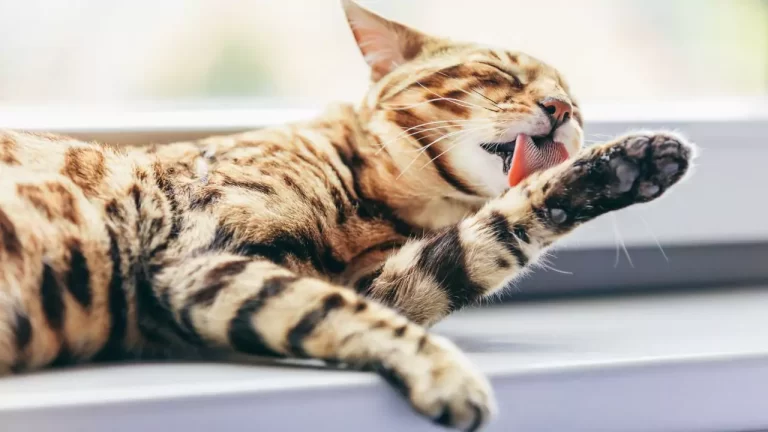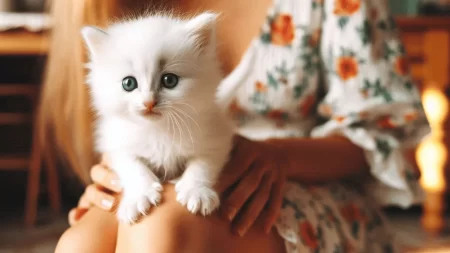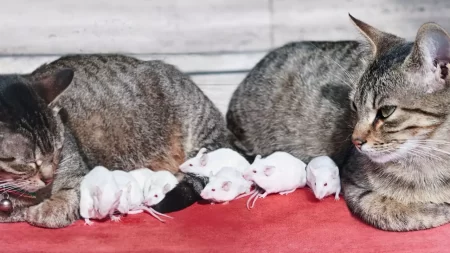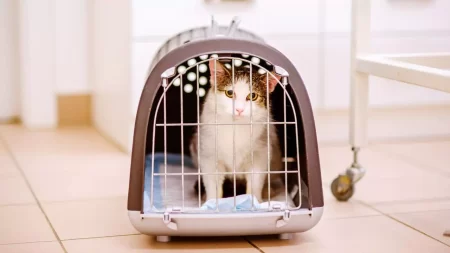Yes, cats are very clean animals. They are naturally very good at grooming themselves, and they spend a lot of their awake time cleaning themselves. The tongue of a cat is rough and has papillae on it. These are tiny hooks that help clean the tongue of dirt, trash, and loose fur.
The Myth of Cats Being Dirty Pets
Cats have often been unfairly labeled as dirty pets. This may be due to the fact that they like to roll around in the dirt and leaves, or because they sometimes bring dead animals into the house. But keep in mind that cats are very good at keeping themselves clean, and they don’t have any diseases that can be passed on to people.
Cats’ Instinct to Clean Themselves
Cats have a strong instinct to clean themselves. This is because, in the wild, they were both predators and prey. Keeping their fur clean and free of parasites was essential for their survival. Domestic cats still retain this instinct, even though they do not have to worry about predators or parasites in the same way.
Antiseptic Properties of Their Saliva
Enzymes in a cat’s saliva have antiseptic and antibacterial effects. What this indicates is that self-licking by cats serves a dual purpose of cleaning and disinfecting. This helps to keep their hair and skin healthy and free of illness.
How Clean Are Cats Compared to Other Animals?
Cats are generally considered to be cleaner animals than dogs. This is because they spend more time grooming themselves and their saliva has antiseptic properties. However, keep in mind that any animal you come into contact with may be harboring bacteria, parasites, or other potentially harmful organisms.
Cats vs Dogs
Dogs are also very good at grooming themselves, but they do not have the same antiseptic properties in their saliva as cats. This means that dogs are more likely to carry bacteria and parasites in their fur. Additionally, dogs are more likely to roll around in the dirt and other unsanitary objects, which can spread germs to their fur.
Cats vs Humans
Humans are not as good at cleaning themselves as cats. We do not have the same rough tongue or antiseptic saliva. Additionally, we often sweat and produce other bodily fluids that can attract dirt and bacteria. This means that humans are more likely to carry germs on their skin and hair than cats.
Maintaining a Clean Environment for Your Cat
Even though cats are very good at cleaning themselves, it is important to provide them with a clean environment. This includes regular grooming, managing their weight, enhancing their mobility, keeping their litter trays clean, and managing shedding.
Regular Grooming
Grooming your cat often will help keep its coat clean and free of stray hairs, dirt, and other debris. It’s good for their circulation, and the natural oils in their skin help maintain their fur healthy and lustrous. At least once a week, and more frequently if your cat has long hair or sheds a lot, you should brush its fur.
Managing Weight
Overweight cats may have difficulty cleaning themselves properly. If your cat is overweight, talk to your veterinarian about ways to help them lose weight.
Enhancing Mobility
Cats with mobility issues may also have difficulty cleaning themselves. If your cat has arthritis or other mobility issues, talk to your veterinarian about ways to help them move more easily.
Litter Trays and Shedding
Scoop your cat’s litter box at least once a day to keep it clean. This will aid in halting the proliferation of disease-causing microorganisms. In addition, you should routinely vacuum your house to get rid of stray hair and dander.
Conclusion
Cats are naturally clean creatures, but they still need a spotless home and frequent grooming to feel comfortable. The aforementioned advice will assist you in maintaining a clean and healthy environment for your cat.







